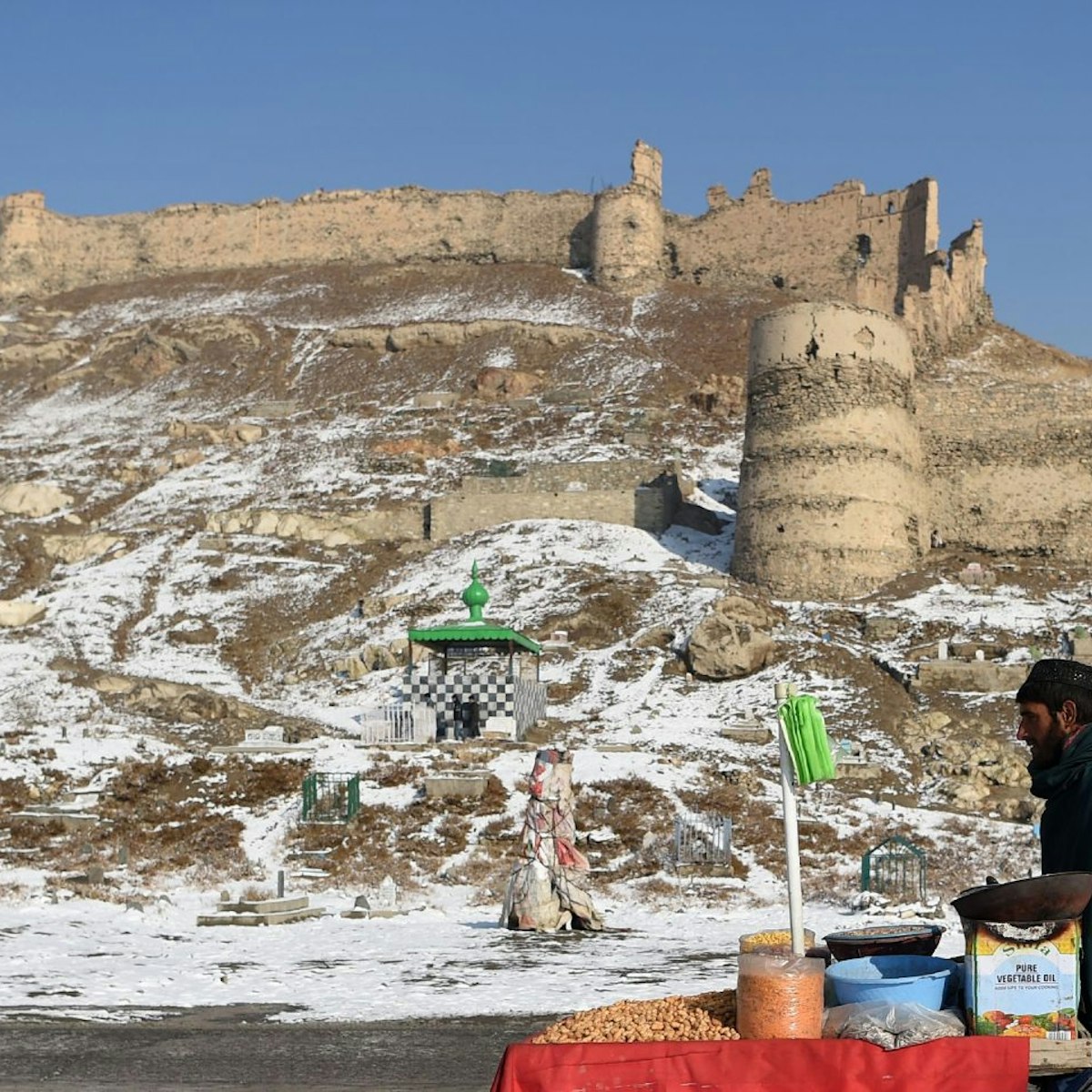Entering Kabul’s bird market is like stepping back in time a hundred years, to a corner of the city untouched by war or modernisation. Also known as the Alley of Straw Sellers, it’s a narrow lane tucked away behind the Pul-e Khishti Mosque, lined with stalls and booths selling birds by the dozen, plus the occasional rabbit. King of all the birds on sale is the kowk (fighting partridge). These are prized by their owners who lavish great care on them, and keep them in domed wicker cages that are almost works of art in themselves. Kowk are fought on Friday mornings in quick bouts of strength (the birds are too valuable to allow them to be seriously harmed), with spectators gambling on the result. Their highly territorial nature also lets them act as decoys for hunters, attracting potential rivals who end up in the pot. Similar to the kowk is the budana, a small lark-like bird. These are also fought, especially among Kandaharis. Unbelievably, their small size means that their owner frequently keeps them tucked in his trousers, bringing them out for contest and display. More benign are the myriad canaries and finches, kept simply for their song. At the far end of the bazaar are the kaftar (doves), a common sight in Kabul’s late afternoon skies.
Lonely Planet's must-see attractions

0.97 MILES
The old seat of royal power, a fortress has stood on the site of the Bala Hissar since the 5th century AD, and quite possibly before. It sits at the foot…

1.51 MILES
Laid out by the Mughal ruler Babur in the early 16th century, and the site of his tomb, these gardens are the loveliest spot in Kabul. At 11 hectares,…

1.46 MILES
The zoo is a popular place for Kabulis in need of recreation. Western animal lovers might find it more than a little depressing. Visitors are greeted…

0.47 MILES
This private museum in the same grounds as the National Gallery is something of a curiosity. It was set up in 2004 by Ahmad Shah Sultani, a gold trader…

1.08 MILES
This is a museum that only a country like Afghanistan could host. Run by the Organisation for Mine clearance and Afghan Rehabilitation (OMAR), it acts as…

1.67 MILES
King Nadir Shah was assassinated in 1933, the time-honoured way that most Afghan leaders meet their fate. His monumental tomb sits overlooking east Kabul…

1.97 MILES
This cemetery was built in 1879 by the British army for the dead of the Second Anglo-Afghan War. The cemetery contains around 150 graves. Most are from…

1 MILES
Holding over 15,000 documents, the National Archive is housed in a palace built at the end of the 19th century by Abdur Rahman Khan for his son. …
Nearby Kabul attractions
0.28 MILES
Timur Shah was the first to make Kabul the capital of a unified kingdom. He died in 1793, but it was another 23 years before his mausoleum was built,…
0.47 MILES
This private museum in the same grounds as the National Gallery is something of a curiosity. It was set up in 2004 by Ahmad Shah Sultani, a gold trader…
3. Shah-e Doh Shamshira Mosque
0.48 MILES
Called the 'Mosque of the King of Two Swords', the Shah-e Doh Shamshira Mosque on Kabul river must be one of the most unusual in Islam. Built in the 1920s…
0.48 MILES
The National Gallery contains a mix of historic pictures and paintings by modern Afghan artists. Like Kabul’s other cultural institutions, it didn’t…
5. Mausoleum of Abdur Rahman Khan
0.54 MILES
The tomb of the 'Iron Amir' sits in Zarnegar Park. Originally a palace, the building has a bulbous red dome atop a whitewashed drum, and fussy decorative…
0.87 MILES
Kabul’s main stadium hosts football matches most Friday afternoons. In the winter months and at Nauroz there are occasional buzkashi matches.
0.97 MILES
The old seat of royal power, a fortress has stood on the site of the Bala Hissar since the 5th century AD, and quite possibly before. It sits at the foot…
1 MILES
Holding over 15,000 documents, the National Archive is housed in a palace built at the end of the 19th century by Abdur Rahman Khan for his son. …



